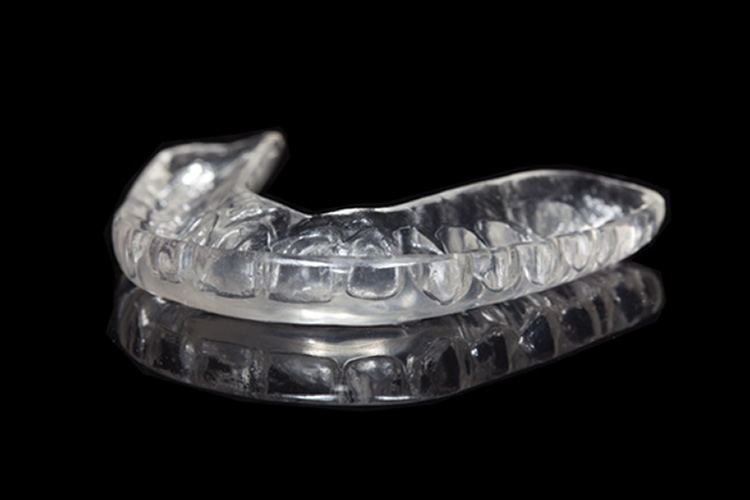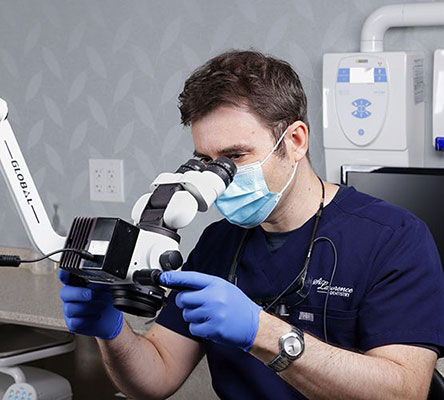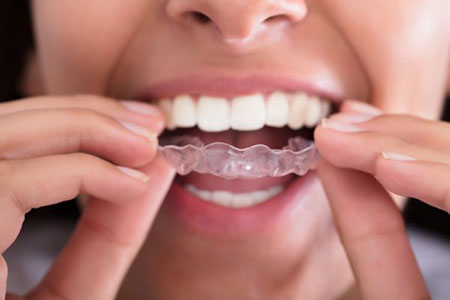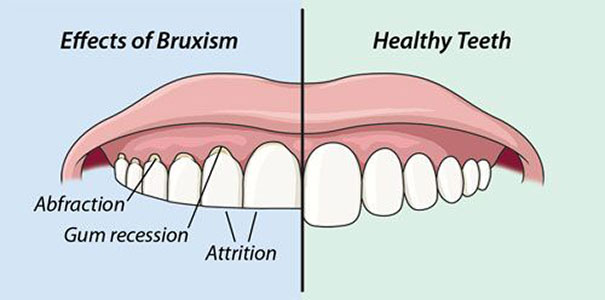Night Guards at St. Lawrence Dentistry: Embracing Technology for Enhanced Dental Care

Introduction: Located in the picturesque neighborhood of Port Credit, Mississauga, St. Lawrence Dentistry is committed to providing exceptional dental care to its patients. Drs. Hawryluk and Mastropole offer services tailored to improve oral health and overall well-being. Among these services, “night guards” are a highly beneficial solution for individuals experiencing TMJ pain, tooth wear, clenching, bruxism, and muscle pain. In addition, through digital scanning and printing technology, specifically 3Shape digital scanning, St. Lawrence Dentistry offers patients a seamless and comfortable experience.

The Advantages of Digital Scanning and Printing for Making Nightguards:
St. Lawrence Dentistry embraces the advantages of digital scanning and printing technology to create custom nightguards. With 3Shape digital scanning, traditional putty impressions are replaced with an efficient and precise digital scan. It means patients no longer have to endure the discomfort of conventional dental impressions. Instead, their upper and lower jaw scans are taken and seamlessly aligned on a computer, ensuring an accurate fit and optimum effectiveness of the night guard.

The Benefits of Night Guards:
- TMJ Pain Relief: Night guards effectively alleviate the discomfort associated with temporomandibular joint (TMJ) disorders. By providing a cushioning effect, night guards reduce strain on the TMJ during sleep, leading to a more comfortable experience and reduced TMJ-related symptoms such as jaw pain and headaches.
- Prevention of Tooth Wear: Bruxism, characterized by excessive teeth grinding or clenching, can cause tooth wear, fractures, and enamel erosion. Night guards act as a protective barrier, preventing direct tooth-to-tooth contact and significantly reduce the potential for dental damage.
- Minimizing Clenching and Bruxism: Night guards create a physical barrier between the upper and lower teeth, reducing the intensity and frequency of clenching and bruxism. By absorbing the forces exerted during these habits, night guards help preserve the integrity of the teeth and prevent additional oral health complications.
- Reduction of Muscle Pain: The strain on the muscles and tissues surrounding the jaw due to clenching and grinding can result in muscle pain and discomfort. Night guards distribute forces evenly, reducing muscle tension and relieving associated pain, including headaches and facial discomfort.

Who Can Benefit from Night Guards?
- Individuals with TMJ Disorders: Night guards offer significant relief to those suffering from TMJ disorders. By stabilizing the jaw and providing cushioning, night guards promote a more comfortable sleep, helping to alleviate TMJ-related symptoms and improve overall oral health.
- Teeth Grinders and Bruxers: Night guards are particularly beneficial for individuals who habitually grind or clench their teeth, especially during sleep. By acting as a protective shield, night guards minimize the impact of grinding forces, preventing further dental damage and preserving tooth structure.
- Patients with Muscle Tension and Pain: Night guards can effectively reduce muscle tension and pain in the jaw, neck, and head. The even distribution of forces achieved through night guards helps relax the muscles, providing relief and improving overall comfort.

Conclusion: Drs. Hawryluk and Mastropole at St. Lawrence Dentistry in Mississauga, use digital scanning and printing technology to craft custom nightguards. By partnering with 3Shape, a recognizable digital dental scanning technology figure, our clinic brings tangible benefits to our respected community members. This collaboration underscores our dedication to the community’s well-being through tailored dental solutions.



